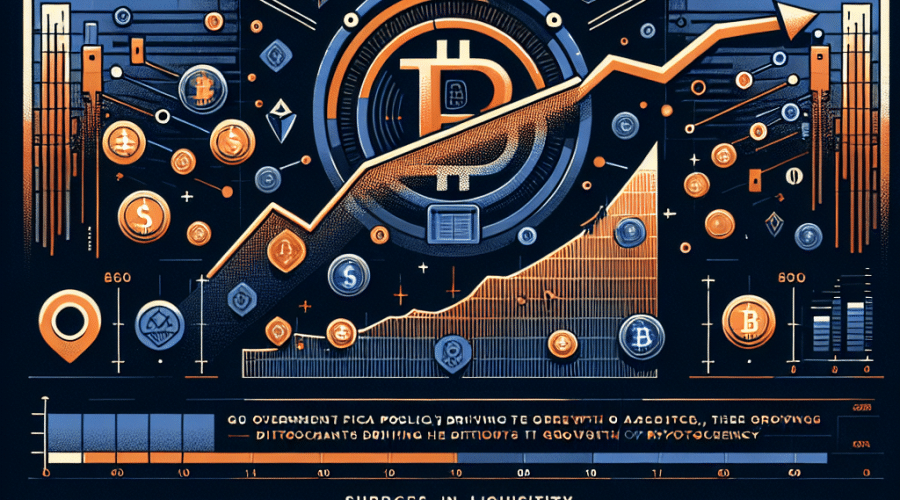Japan’s stance on cryptocurrency regulation is rapidly evolving, setting a precedent for global financial markets. As the nation moves toward treating digital assets with the same rigor as traditional securities, new opportunities and challenges are emerging for investors, innovators, and regulators. This regulatory shift is matched by rising excitement in the crypto ecosystem, with projects like Tapzi advancing new play-to-earn paradigms, and stalwarts such as Dogecoin gearing up for possible rallies. This article explores the implications of Japan’s regulatory moves, the rise of Tapzi’s skill-based gaming platform, and the ongoing resilience of Dogecoin, painting a comprehensive picture of where the next explosive growth may arise in the cryptocurrency market.
Japan Tightens Cryptocurrency Regulations: A Game Changer for Global Investors
Japan, renowned for its forward-thinking technology sector and robust financial market, is now applying its regulatory acumen to digital assets. The Financial Services Agency (FSA) and the Securities and Exchange Surveillance Commission (SESC) have jointly announced a sweeping reform: a comprehensive framework that will criminalize cryptocurrency insider trading and align its oversight with traditional equity market standards.
This legal initiative, set to be presented to the Japanese parliament in 2026, reflects the government’s commitment to curbing unethical trading practices and promoting a transparent marketplace. By holding crypto to the same ethical and legal yardsticks as stocks and bonds, Japan is positioning itself at the forefront of the global movement to institutionalize the crypto sector.
Insider Trading in Cryptocurrency: What the New Rules Mean
One of the cornerstones of the FSA and SESC’s proposal is the explicit categorization of insider trading in digital assets as a criminal offense. The bill, once enacted, will empower the SESC to investigate suspicious activity, recommend substantial financial penalties, or even pursue criminal charges against violators. Over the course of 2025, a dedicated working group will define specific actions that qualify as illegal insider trading, providing much-needed regulatory clarity in the crypto industry.
Potential offenses could include leveraging non-public information about upcoming token listings or exploiting undisclosed vulnerabilities on blockchain networks. Cryptocurrency exchanges operating in Japan will face new obligations to bolster compliance systems and rigorously police information sharing among employees and partners.
By implementing this strict oversight, Japan aims to restore trust and level the playing field for all market participants. With over 7.8 million active trading accounts—a staggering fourfold increase since 2020—the country’s crypto market shows no signs of slowing, attracting both retail and institutional investors. Major firms, such as Nomura through its Laser Digital division, are reportedly discussing formal crypto trading licenses with the FSA, highlighting the rising demand for regulated exposure to digital assets.
Skill-to-Earn Gaming Platforms: Tapzi’s Innovative Approach
While Japanese regulators are reshaping the landscape for crypto trading, innovators are simultaneously expanding the industry’s horizons. Tapzi, a decentralized gaming platform built on the BNB Smart Chain, has recently captured the crypto community’s attention through its distinctive ‘Skill-to-Earn’ model. This approach pivots away from the luck-based systems that commonly define play-to-earn gaming, offering rewards directly linked to players’ abilities.
The platform’s native token, TAPZI, debuted in presale at $0.0035, with a planned initial exchange listing price of $0.01. This controlled entry price, coupled with robust tokenomics—a fixed supply of 5 billion tokens, with an initial 25% unlock and subsequent structured vesting—has helped foster substantial early interest. In fact, over 57% of the presale allocation has already been claimed, hinting at intense demand from both investors and gamers.
The Mechanics of Skill-to-Earn: Reinventing Fair Play
Tapzi disrupts the GameFi sector by offering classic games—such as Chess, Checkers, and Rock-Paper-Scissors—in a real-time, peer-versus-peer environment. Here, participants stake TAPZI tokens on the outcome, with the victor claiming the opponent’s stake. Crucially, every game result is recorded via smart contracts, eliminating the possibility of fraud, bot manipulation, or treasury depletion caused by unsustainable token emissions.
This transparent system directly addresses some of the largest criticisms leveled at conventional play-to-earn projects, where token inflation and unfair game mechanics have often undermined value and user confidence. Tapzi’s structure ensures rewards are merit-based, aligning incentives for both players and investors.
Global Expansion Strategy: Aiming for 1.5 Billion Mobile Gamers
Tapzi is targeting global growth in both established and emerging markets. The project is actively planning expansion into Tier-1 economies—including the United States, Singapore, and Japan—as well as rapidly growing gaming hubs in Brazil, India, and Turkey. These regions collectively account for an audience of over 1.5 billion mobile gamers, a demographic that remains largely untapped by existing Web3 gaming solutions.
To empower game creators, Tapzi provides software development kits (SDKs), staking modules, and a ready user base. This launchpad approach enables independent developers to seamlessly integrate skill-driven games, fostering a dynamic ecosystem. Moreover, support for gasless gameplay and instant browser-based access lowers the adoption barrier for mainstream users, positioning Tapzi as a true bridge between traditional gaming and blockchain-based entertainment.
Dogecoin: Historical Patterns and Future Potential
Even as new projects like Tapzi redefine what’s possible in crypto entertainment, legacy tokens such as Dogecoin continue to exert significant influence. Over the years, Dogecoin has garnered a cult-like following and experienced dramatic price swings—often spurred by social media buzz and celebrity endorsements.
Recent analysis by prominent traders suggests that Dogecoin is, once again, entering a potentially explosive phase. Technical analysts observe that the cryptocurrency is exhibiting price action reminiscent of its accumulation pattern from 2014 to 2017, a period that eventually led to a major breakout. At the time of writing, Dogecoin is trading around $0.2049, with a daily trading volume exceeding $4.5 billion and a market capitalization of $31 billion.
Although Dogecoin recently experienced short-term corrections—dropping 4.4% in a single day and 18% over the week—analysts remain optimistic. The token’s ability to stay above its critical support level ($0.18) has been noted as a promising sign. Resistance at the $0.23–$0.25 range is being closely monitored; a decisive move above this range could ignite renewed bullish sentiment and potentially propel the asset to the $0.30 mark, mirroring significant rallies earlier in the year.
Japan’s Regulatory Model: Setting Global Standards for Crypto
Japan’s embrace of strict crypto regulation is likely to resonate far beyond its borders. By bringing digital assets under the same regulatory apparatus that governs stocks and bonds, the nation is sending a clear message: crypto must mature and operate within the mainstream financial system. This move is especially notable as more institutional investors seek exposure to digital assets under regulated conditions, a trend visible in the partnerships being explored by major firms such as Nomura.
For the crypto ecosystem, Japan’s reforms may signal an inflection point, encouraging other countries to consider similar approaches. A global standard for crypto oversight could foster deeper trust and attract larger pools of capital, benefiting responsible innovators and investors while deterring bad actors.
Conclusion: The Future of Crypto Investment and Innovation
The cryptocurrency market is entering a new era—one defined by tighter oversight, groundbreaking innovation, and shifting investor expectations. Japan’s proposed ban on crypto insider trading aims to cement fair, transparent markets and set the stage for a safer investment environment. For market participants, the readiness of regulators to crack down on unethical practices could be the catalyst for widespread adoption among institutional and retail investors alike.
Simultaneously, the emergence of next-generation projects like Tapzi showcases the industry’s capacity to reinvent itself. By leveraging blockchain technology for transparency and fairness in gaming, and coupling these advantages with investor-friendly tokenomics, Tapzi stands as a blueprint for future blockchain ventures in regulated environments.
As for Dogecoin, its cyclical price movements and fan-driven rallies continue to captivate traders. With technical indicators suggesting the potential for another major breakout, veteran tokens remain a critical component of the crypto landscape.
In summary, as Japan integrates digital assets into its existing financial regulatory structure, the global crypto industry appears poised for another wave of sophisticated, trust-based growth. Investors, innovators, and regulators alike are now tasked with shaping a marketplace where responsible innovation can flourish alongside robust oversight—a recipe for a more resilient and inclusive crypto future.


















